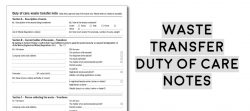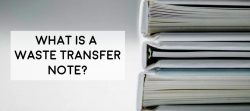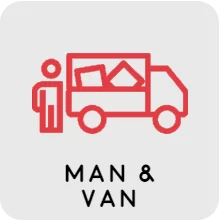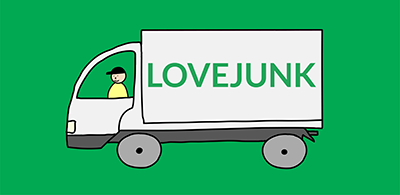Do I need a Waste Carrier Licence?
How to guide about the rules on whether you need a waste carrier license
Anyone*, not just waste contractors, that transports someone else’s waste as part of their trade or to make money must be registered as a waste carrier with the Environment Agency (EA). In addition, tradesmen transporting building, demolition or refurbishment rubbish they have created themselves must also be registered as a waste carrier.
The requirement to be licensed as a waste carrier applies regardless of where the waste is taken (whether back to the carrier’s own premises, another person’s premises, or directly to a licensed disposal facility) or whether the waste carrier is a one-man band, partnership or limited company.
How to register?
Registering as a waste carrier is actually very straightforward and inexpensive. The application form is available to download from the EA’s website. Once registered you are issued with a waste carrier license and license number and entered into a central database. Registration lasts three years, after which it can be renewed for an additional cost.
What happens if you don’t register?
Failure to register as a waste carrier is illegal and, if caught, will result in criminal prosecution, including a fine and seizure of the vehicle used to transport the waste. In addition, because a considerable number of commercial contracts with large organisations include an obligation on the subcontractor to comply with the current environmental law, failure to comply with these obligations is likely to constitute a breach of contract.
What does this mean for people with waste to dispose of?
The fact that the registration process is so easy means that waste carriers who aren’t licensed are likely to be cowboys who intend to dispose of the waste unlawfully. So, if you use contractors (like builders, landscape gardeners, tree surgeons, carpet fitters, skip hire companies, house clearance companies, furniture retailers, skip companies, or scrap metal merchants) who are removing waste items from your property, ask them for their waste carrier license number.
You can check with the Environment Agency whether their license is valid at Authorised Waste Carriers or by calling 08708 506506. If they aren’t registered, don’t use them. They might seem like nice people, or their rates appear great value, but the likelihood is that the waste will end up on the side of the road or in a bonfire. Fly-tipping costs the UK more than £100m each year – so make sure your tax is spent on something better, don’t use cowboys.
* The few exemptions to this rule include charities, local councils, and carriers of agricultural waste, although these are still obliged to register as a professional collector and/or dealer.
What does this all mean in a nutshell?
- If you use someone to take away your waste, make sure they’re licensed to do so with the EA.
- If you move building or demolition waste that you’ve created as part of your business, you need to be licensed as a waste carrier.
- If you transport another person’s waste, you need to be licensed as a waste carrier.
Other useful articles & guides
- regulation and best practise for contractors removing waste from customer sites
- how to dispose of empty containers of hazardous waste
- 5 questions to ask your waste contractor
- what is a waste transfer note
- what to do with a waste transfer note
- example waste transfer note
Our small print
AnyJunk is not a firm of solicitors, consultant or public authority – we are a rubbish clearance company. This guidance is designed to be a pragmatic summary for the majority of users and we have not included a multitude of additional rules, caveats and exemptions that may be relevant to your specific situation. If you require more detailed information or a definitive view on the rules and regulations governing waste, we recommend seeking independent legal advice or, at the very least, contacting the Environment Agency for a proper chat. In other words, please don’t sue us; we’re only trying to help!












